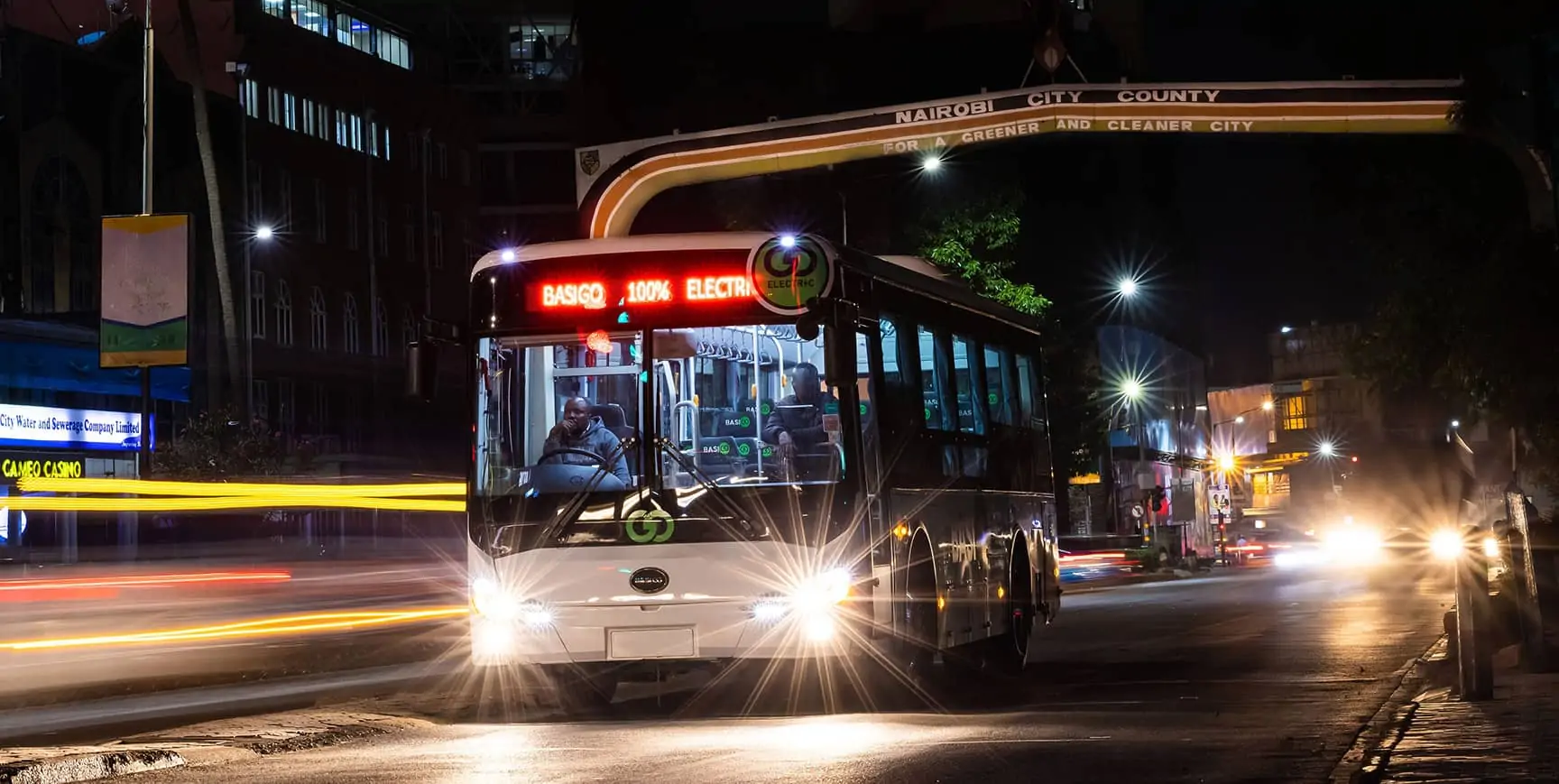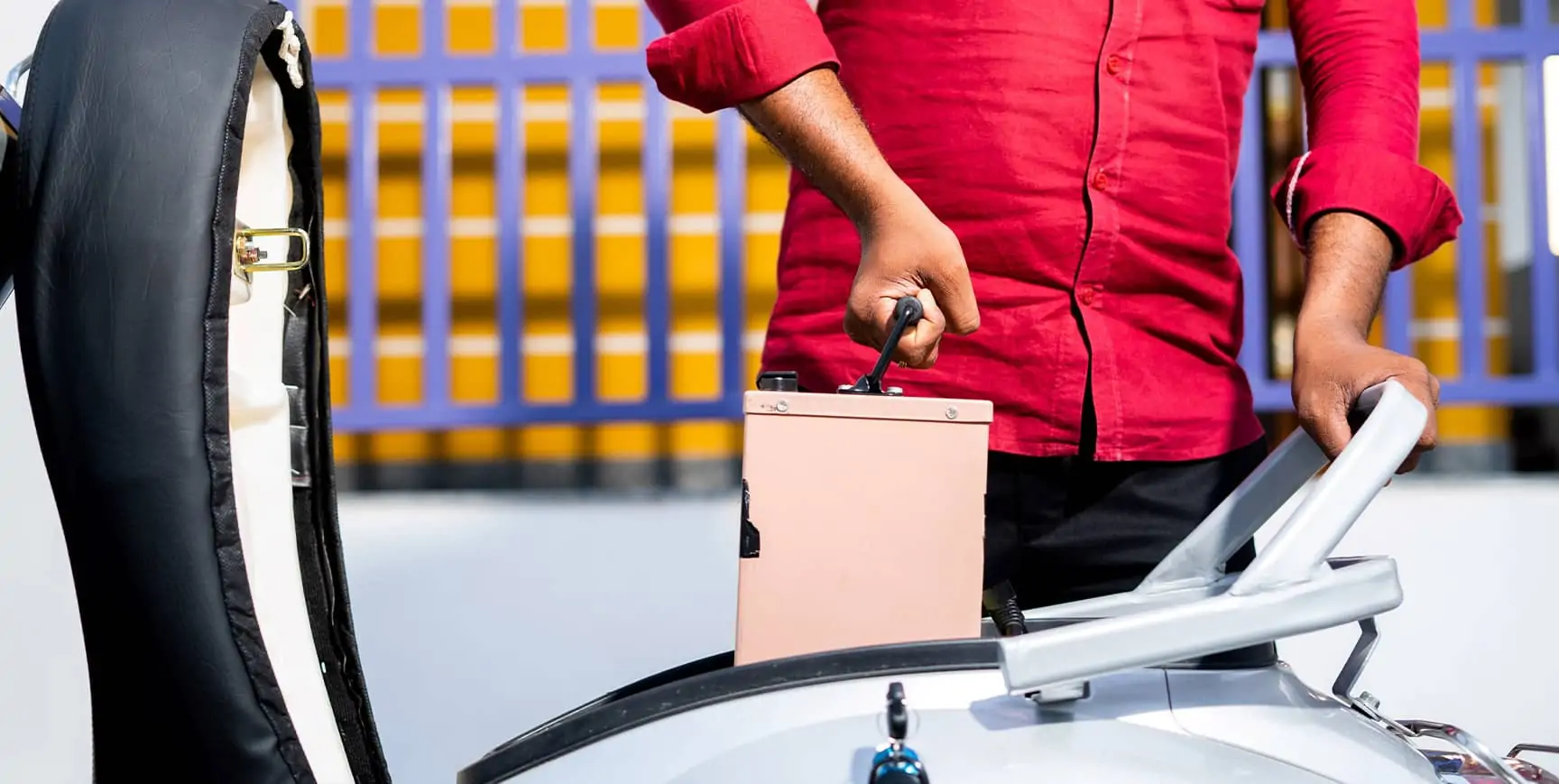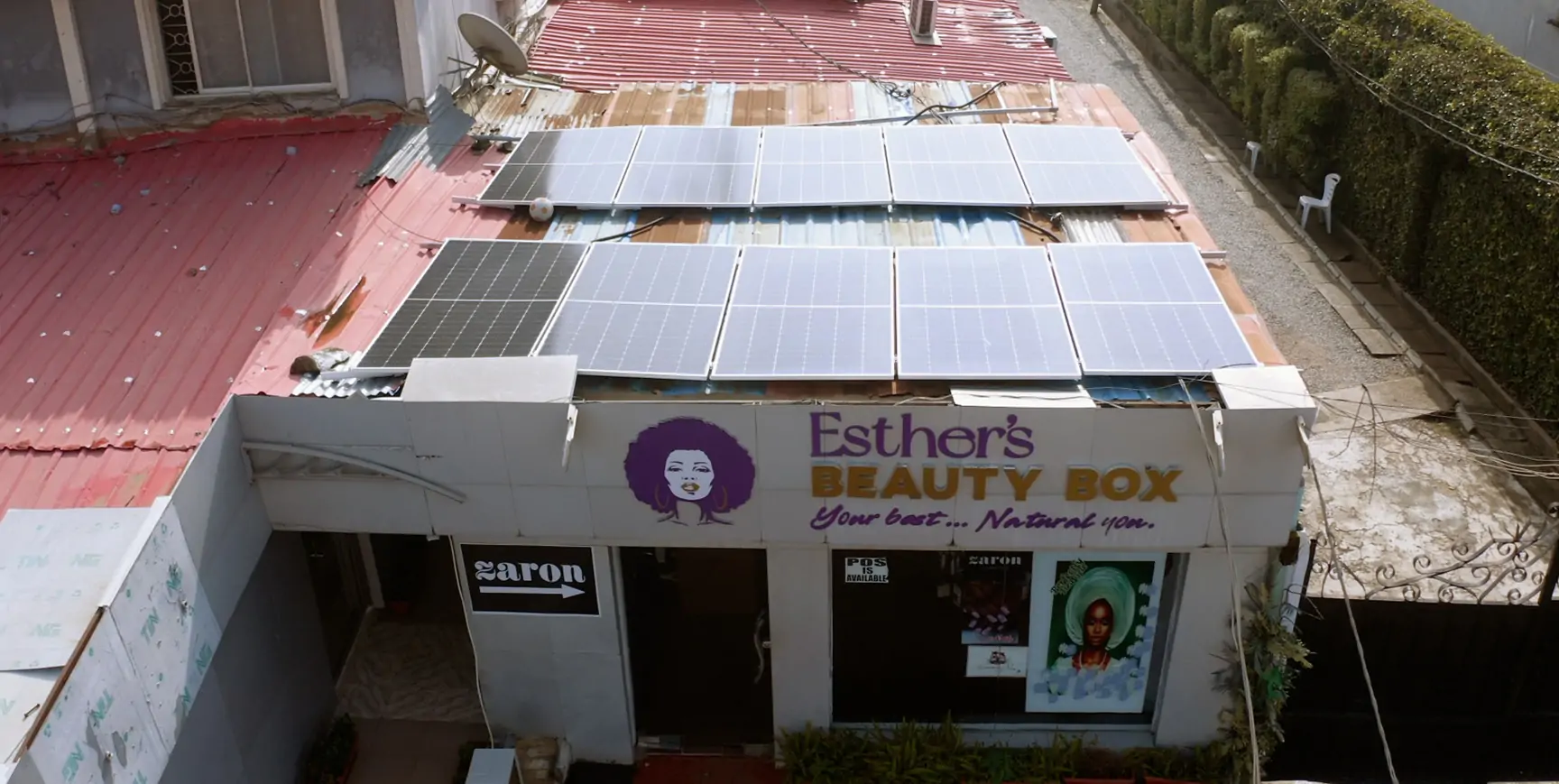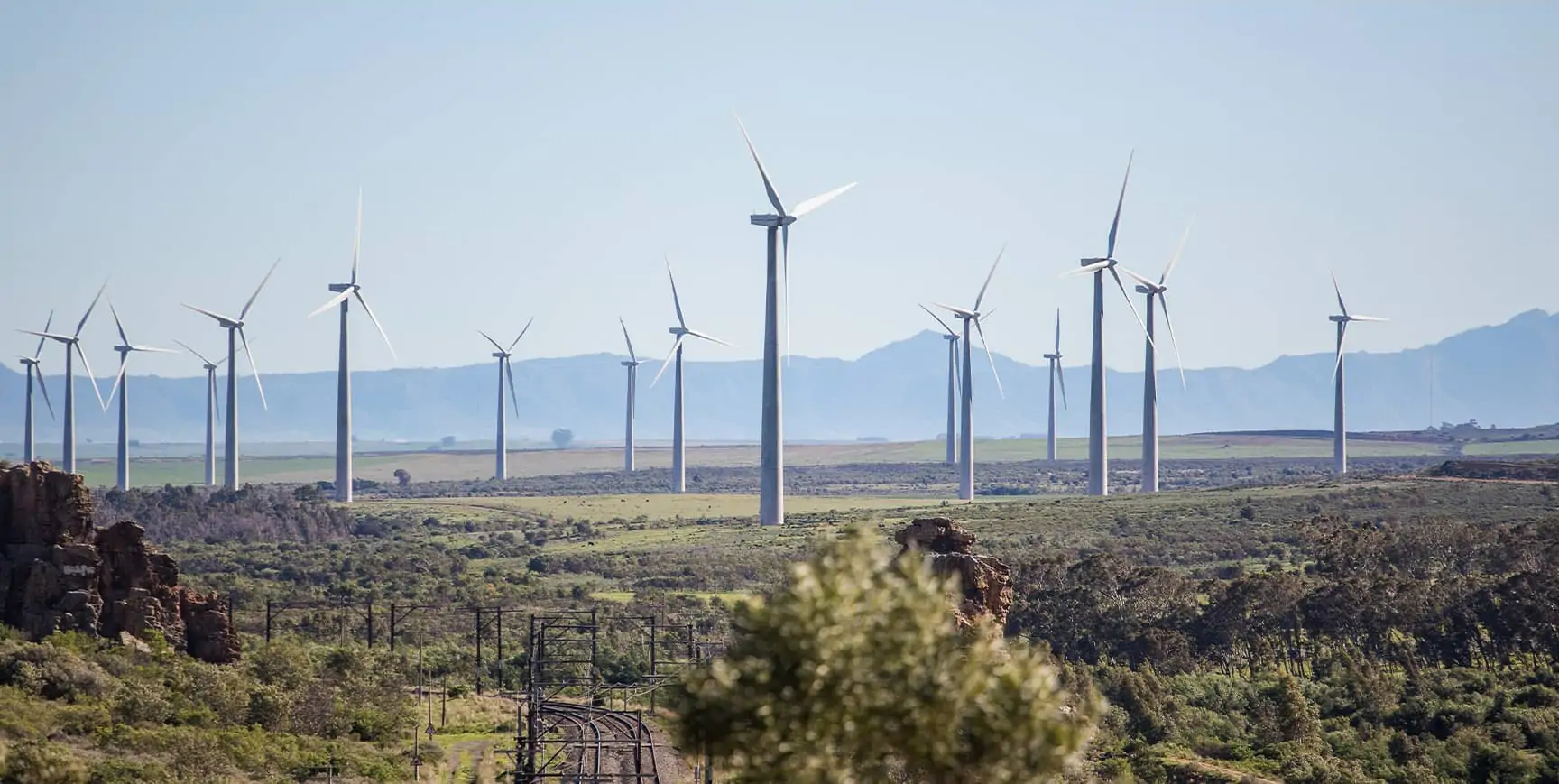Our investment in BasiGo is helping Kenya and Rwanda switch to electric buses, cutting carbon emissions and making city travel safer.
Kenya’s transport sector accounts for 13 per cent of the country’s total greenhouse gas emissions, and Nairobi’s 20,000 diesel buses are a major contributor. Diesel buses in Nairobi are often poorly maintained, polluting and unsafe, making electric alternatives highly attractive to both commuters and policymakers. But barriers such as high upfront cost, concern that e-buses are not designed to meet the needs of African transport, and a lack of charging infrastructure have historically limited uptake. As the city’s population grows and public transport demand rises, switching to e-buses is essential for cutting pollution and supporting sustainable urban transport.
In 2023, we committed a £4 million loan to BasiGo, a pioneering electric mass transit company with a ‘pay-as-you-drive’ leasing model. By March 2025, its e-bus fleet had expanded from 19 to 55, helping to avoid around 1,600 tonnes of CO₂ emissions that diesel buses would have produced, while also reducing other harmful pollutants. The transition to electric buses has also improved the commuting experience for customers, while operator earnings increased by at least 20 per cent.
After demonstrating e-bus leasing was a viable business model in Kenya, BasiGo expanded into Rwanda, launching a four-bus pilot in Kigali. We provided a follow-on £6 million loan in 2024, helping BasiGo to scale up its Rwanda fleet and charging infrastructure. The Rwandan Government has set a target of 20 per cent electric buses by 2030, making businesses like BasiGo essential in driving the clean energy transition.








